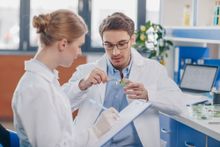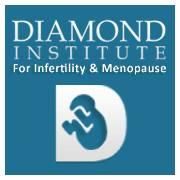A Basic Guide to Egg Donations

There are many reasons to consider egg donation, both personal and financial. Doing so can help couples struggling with infertility, as well as giving you insight into your own medical situation. If you're interested in this procedure, the guide below discusses it further.
What to Know Before Egg Donation
Before you can undergo this procedure, you'll have to pass several types of screenings. The clinic will examine your medical history, mental and physical health, and also your educational and professional qualifications. You'll have to undergo drug and STD testing as well.
If you're approved, you'll have to take medications to stop your normal menstrual cycle and allow your ovaries to produce multiple eggs at once. You'll have to self-administer these injections, but the doctors will illustrate the best ways to do so. These medications make it easier for the clinic to remove multiple eggs in one procedure.
What to Expect During the Procedure
 The procedure involves inserting an ultrasound probe into the vagina for visibility, then using a small needle to actually remove the eggs from the ovaries, which takes about half an hour.
The procedure involves inserting an ultrasound probe into the vagina for visibility, then using a small needle to actually remove the eggs from the ovaries, which takes about half an hour.
The egg removal procedure itself is an outpatient session, meaning you'll be able to go home afterward. If using sedation, you'll need someone else to drive you home. Recovery can take anywhere from one day to one week.
What to Expect Afterward
As an egg donor, you will enter into a formal contract that protects both you and the future parents who receive your eggs. You will legally give up both your rights and your responsibilities to any children conceived using your eggs.
Your donation may be anonymous or known. With anonymity, the recipients of your eggs won’t know any identifying information about you, only your medical and family history. With a known donation, the recipients will know your name and have access to your contact information. Keep in mind that in order for you to know who received your eggs, they must also choose to disclose their identity as well.
If you're considering egg donation, Dr. Ndidimaka Onwubalili and Dr. Matan Yemini at the Diamond Institute for Infertility & Menopause will help. Based in Millburn, NJ, and serving Essex County for over 40 years, they offer a full range of fertility services, including egg donation and egg freezing. These compassionate doctors will walk you through the process and thoroughly answer any questions. To browse their services, visit their website or call (973) 761-5600 to schedule an appointment.
About the Business
Have a question? Ask the experts!
Send your question

